Relationships come in all shapes, sizes, colors, and meanings. You may most often think of romantic or marital when someone mentions relationships. But there is a whole gamut along the relationship spectrum from casual to committed with emotional involvement from minimal to intense. Everyone approaches relationships differently which makes one wonder how people ever get together to form even a casual friendship or acquaintance.
A relationship is an emotional exchange between two people over time and may or may not involve sex. All relationships have a level of intimacy, an agreed-upon set of behaviors and parameters and the responses for compliance or violation.
Boundaries define how far each party is willing to go in compromise and which behaviors are deal breakers. Over time, relationships may deepen and strengthen, stagnate, or become toxic. Relationships serve as anchors in your various communities—family, social, work, school, faith or spiritual, neighbors, hair stylists, tailors, etc. You are an active participant in every area of your world.
There are myriad categories and forms of relationships. A few basic categories include family, friends, acquaintances, romantic, sexual, adversaries, and situational. An often-over-looked category is your relationship with yourself. Many other categories exist, and each category has an unending number of forms. Platonic, casual, and open are forms of relationships.
Relationships have several mental health and well-being benefits that help physical health as well. They offer a sense of belonging which wards off feelings of loneliness and isolation. A sense of loving and being loved and cared for stems from relationships. Lifelong learning occurs as each person learns from the other in an ever-expanding mutual experience of each other. Development and honing of social skills happen as the pair interact and grow. Physically, relationships can promote improved sleep, support heart health, increase feelings of happiness, and contribute to longevity.
You are the number one ingredient in every one of your relationships. Knowing who you are, what you want and need, and where you draw the lines will take you a long way in defining how your relationships will operate. Based on mutual respect, especially in areas of disagreement, relationships have a more promising chance of survival if both people bring their authentic selves. Developing and sustaining healthy relationships require diligence and honesty of both parties.
Relationships define the ebb and flow in your life. You learn which behaviors are appropriate and acceptable and which are not. A network of supportive, often like-minded, people can help you follow through on opportunities by paving your path to others. When life is stressful, a support system of people
who care about you can help you in a number of ways, including listening, soothing, or addressing other needs. People who respect and support your spirituality can help ground and center you.
Two boons to cultivating relationships are social media and video conferencing platforms, strengthening bonds across miles—even internationally. Social media lets you post photos, videos, and favorite images to share and exchange with others. Videoconferencing offers you visuals of each other in real time. While neither of these options replaces in-person communication, they go a long way in offering more than telephone which has its own virtues.
Unhealthy relationships are sometimes referred to as toxic. They include codependent, disrespectful, and hostile attitudes and behaviors that may or may not include physical or sexual abuse. But there is at least one element of dysfunction, such as abuse—verbal, emotional, physical—controlling, judgmental, gaslighting, etc. The symptoms of these types of relationships are not always easy to spot early in the relationship but raise suspicion after a period of time. You or others outside the relationship may begin to see signs that make you question yourself or the other person. Extricating oneself from a toxic relationship may prove difficult and time-consuming.
Exercise: Spend some time with your journal to respond to the questions below. Be as specific as possible and take as much time as you need. Think of a relationship in your life—of any level of significance. The relationship could be romantic, a friendship, or with the person who cuts your hair. Answer the following questions in writing. You may need several writing sessions and journal pages.
- How significant is this relationship in your life? What does the relationship mean to you?
- How do you feel in the relationship? Safe? Energized? Content? Tolerant? Jittery?
- Do you like the person? What qualities about the person attract you and make you want to get to know the person better? What qualities about the person repel you or make you feel cautious?
- What do you and the other person have in common?
- What do you and the other person not have in common, but you enjoy doing together anyway?
- What are you willing to compromise for the sake of the relationship? (Example: This person gives you the best haircut you have had in years, but the person’s vitriol about sensitive topics is hurtful to you.)
- What are the deal breakers, for you, in the relationship? Have you discussed them?
- Do you like who you are when you are with the person or when you think of the person? Why or why not?
- How do you behave in the relationship towards the other person? Is your behavior in line with your values?
- How do you behave in the relationship towards people outside the relationship?
- How do you behave in the relationship towards yourself?
- What needs—physical, emotional, social, spiritual, other—of yours are being met in the relationship?
- What needs—physical, emotional, social, spiritual, other—of yours are not being met in the relationship?
- How do you think the other person feels about you?
- How do you think the other person feels about the relationship?
- What do you do for self-care in your relationships?
- What is your hope for the future of the relationship?
The above questions are starting points and may lead to other questions. Pay attention to your internal responses to the other person’s behavior and your own. Trust your gut. Bring concerns into the open and be willing to speak your truth and to listen to the other person speak theirs.
American culture places a lot of emphasis on relationships of all kinds. Simultaneously, independence and agency in one’s life are valued a great deal. While discussions and research usually focus on romantic and marital relationships, every relationship in your life affects every other relationship in your life. May yours be healthy, happy, and fulfilling. Enjoy.

Author bio: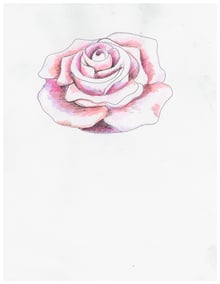 Billie Wade is a writer living in central Iowa. She is the creator and founder of Journaling to Heal, a program she designed to help people as they travel their journey of healing from emotional stress and trauma. Her background, education, and experience enhance her innate compassion and reverence for other human beings. She shares her strength and wisdom on www.journalingtoheal.com.
Billie Wade is a writer living in central Iowa. She is the creator and founder of Journaling to Heal, a program she designed to help people as they travel their journey of healing from emotional stress and trauma. Her background, education, and experience enhance her innate compassion and reverence for other human beings. She shares her strength and wisdom on www.journalingtoheal.com.
Contact her at billie@journalingtoheal.com
Journaling Power Revolution Series

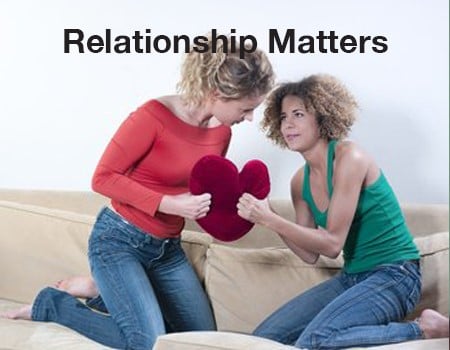
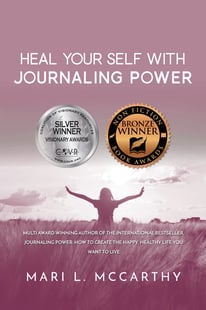
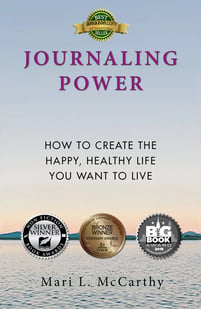
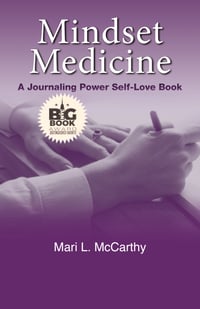
Leave Comment